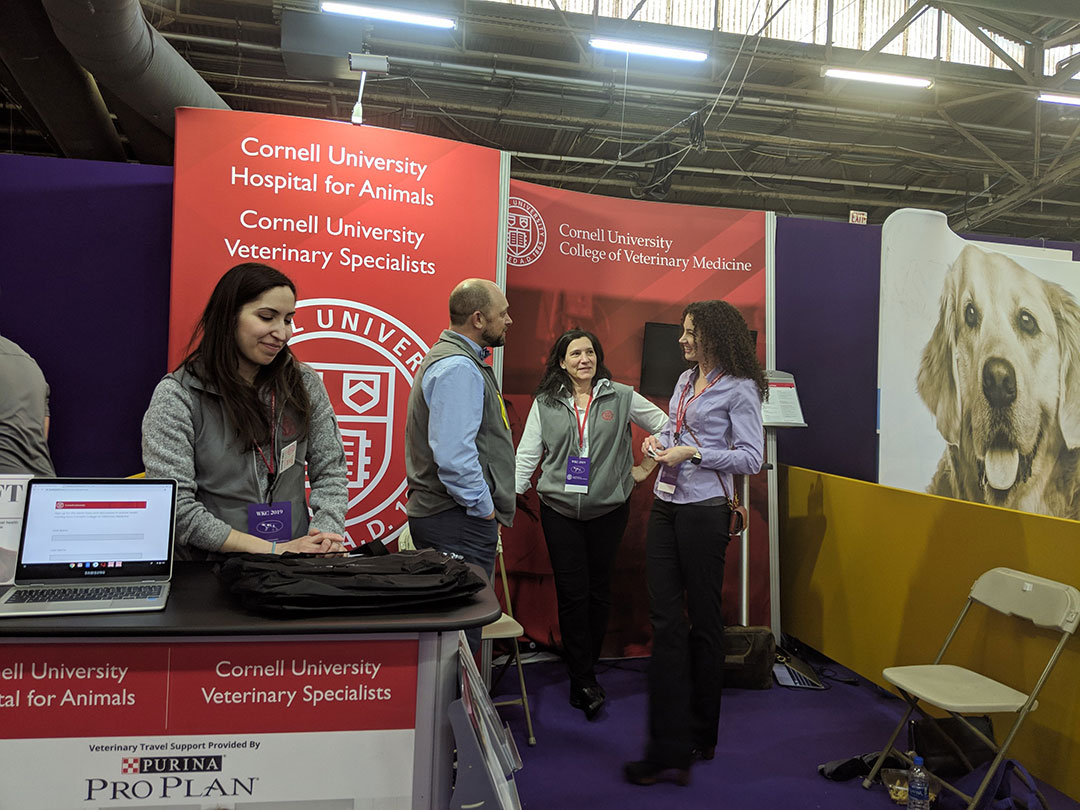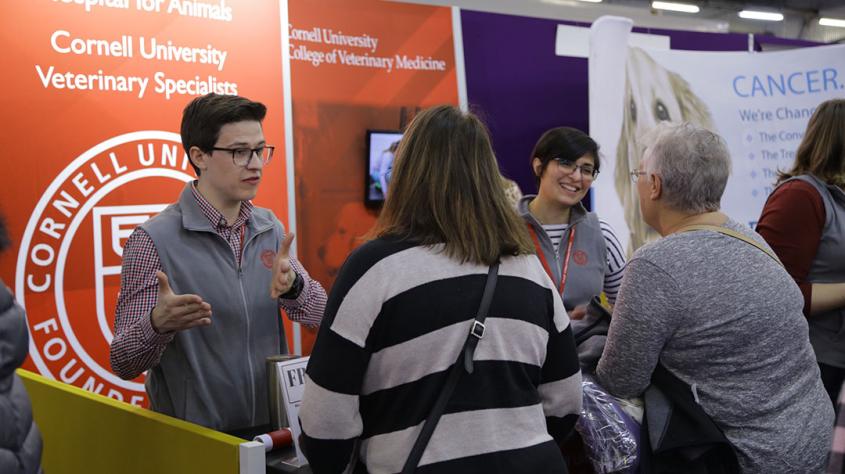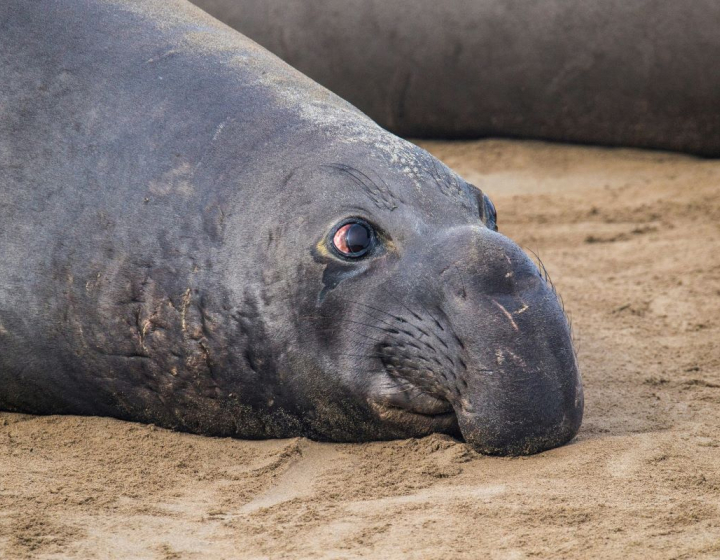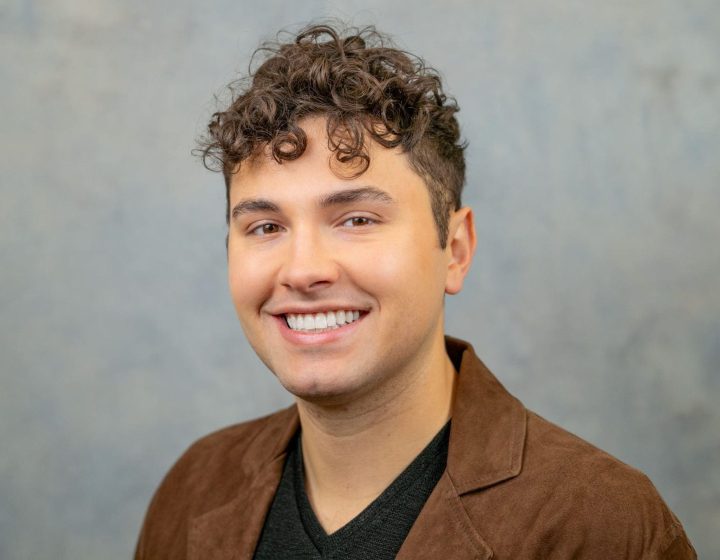Cornell veterinarians at Westminster showcases longstanding partnership with Nestlé Purina
For nearly a century and a half, the Westminster Kennel Club Dog Show has been attracting audiences across the nation. This year, thanks to a long-standing partnership between Cornell’s College of Veterinary Medicine and Nestlé Purina, Cornell faculty and students stood ready on-site at the New York City event to provide veterinary support for the special canine participants of the 143rd annual show, which took place Feb. 9–12.
When the college approached Nestlé Purina about creating an opportunity for Cornell veterinarians to provide on-site support at Westminster, which also partners with Purina, the company was eager to offer funding for transportation and housing, said Kurt Venator, D.V.M. ‘03, chief veterinary officer at Purina. Over the course of the show’s filming, 13 clinical veterinarians, 13 student technicians and two oversight veterinarians from the college were available to provide general care to 2,800 canines, as well as to treat or manage any sudden onset of illness or injury.
Venator, who credits his time at the College of Veterinary Medicine for much of his passion and dedication to pets and people, said, “The expertise and commitment at Cornell align very naturally with the mission at Purina to help pets live longer, healthier and happier lives. Cornell, Westminster and Purina are leading organizations and we saw this as a wonderful opportunity to come together to strengthen the bond between pets, people and the veterinary profession. In addition, we recognize how important hands-on service is for students’ professional development.”
The partnership between Nestlé Purina and Cornell spans more than three decades and a variety of funding initiatives — from a professor, technician, resident and full program in the area of nutrition, to a resident in sports medicine and rehabilitation, to a host of other positions and smaller programmatic events.
One resident funded through the Nestlé Purina partnership was Christopher Frye, D.V.M. ’11, diplomat of the American College of Veterinary Sports Medicine and Rehabilitation and currently assistant clinical professor, Section of Sports Medicine and Rehabilitation. Frye also participated on-site as a veterinarian for the agility championships at Westminster.

Working under Joseph J. Wakshlag, D.V.M. ’98, Ph.D. ’05, from 2014–16, Frye was the first dual resident in Cornell’s residency program, combining clinical nutrition and sports medicine and rehabilitation.
“It was an amazing experience,” Frye said. “I was able to help start a new program at Cornell, I had a great mentor and I was sent all over North America to practice with a variety of canine sports medicine and surgical specialists. I gained a lot of knowledge from a medical standpoint, but I was also able to see how my field could be improved and how to better provide medical care for my patients.”
For example, he explained, for dogs who might not be good surgical candidates for one reason or another, Frye can employ a gold standard non-surgical approach — using a holistic combination of physical therapy, nutrition, weight loss and pain management.
“Nestlé Purina funded Frye in the new program not only to advance the science in that field but also to highlight that Cornell is a leader in integrative medicine — linking nutrition, sports medicine and rehabilitation into comprehensive care,” Venator said.
As for Frye’s experience at Westminster, he called it a great time. “The dogs competing here are the top-end dogs in the world,” he said. “And there’s nothing better than meeting people with such high passion for what they’re doing. My knowledge base is medical, but talking to trainers, handlers and breeders helps me better understand the physical demands, psychological drive, feeding program and breed attributes that contribute to success — in this manner, you can really work together to optimize the dogs’ health.”
Frye was especially glad to see that the dogs were safe and that no emergent needs requiring medical attention arose. “If we get to provide some outreach and education and build stronger relationships with all these wonderful people, I’m very happy with that too.”
By Jennifer Savran Kelly






